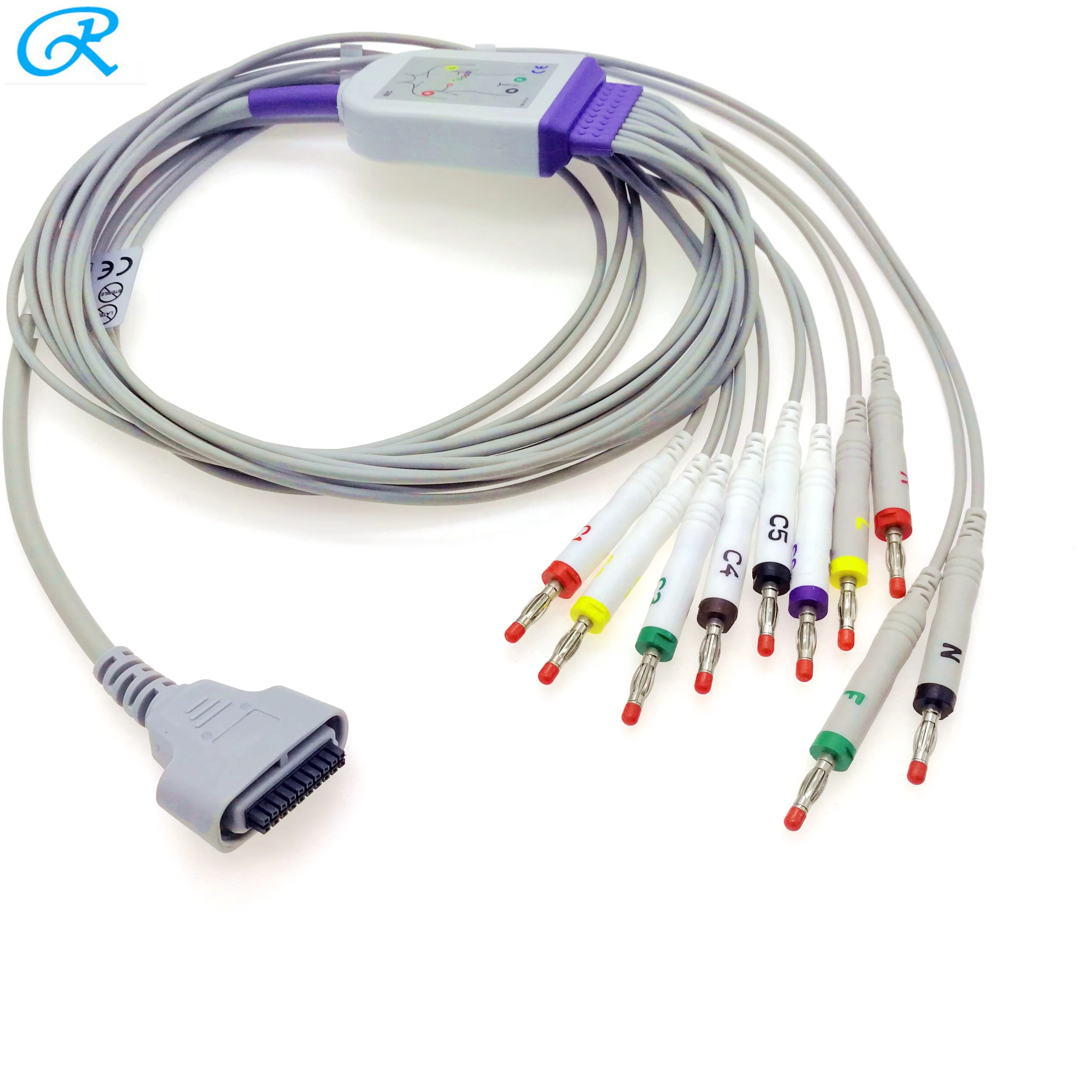When it comes to accurate diagnostics in the medical field, the choice of ECG cables is paramount. Electrocardiogram (ECG) cables are essential for transmitting electrical signals from the heart to the ECG machine, allowing healthcare professionals to monitor and diagnose various heart conditions. With the wide variety of ECG cables available on the market, selecting the right one can be a daunting task. This article aims to guide you through the key considerations in choosing the appropriate ECG cable, ensuring optimal performance and accuracy in diagnostics.
Understanding ECG Cables
ECG cables are designed to connect electrodes placed on the patient's skin to the ECG machine. The quality of these cables significantly influences the clarity and reliability of the ECG readings. High-quality ECG cables minimize noise and interference, providing clearer signals that lead to more accurate diagnoses. Factors such as cable length, material, and connector type play crucial roles in determining the effectiveness of ECG cables.
Key Features to Consider
When selecting ECG cables, there are several important features to consider:
1.Material Quality: Look for cables made from durable, flexible materials that can withstand repeated use. High-quality insulation is essential to prevent signal interference.
2. Connector Compatibility: Ensure that the ECG cables are compatible with the ECG machine and electrodes you are using. This compatibility is vital for seamless operation and accurate readings.
3. Cable Length: Depending on the setting (hospital, clinic, or home care), the length of the cable can impact ease of use. Longer cables provide more flexibility, but they can also introduce more noise if not managed properly.
4. Electrode Type: Different ECG electrodes may require specific types of cables. Understanding the requirements of your electrodes can help you make an informed choice.
5. Ease of Cleaning: In a clinical environment, hygiene is critical. Choose cables that can be easily cleaned and sanitized to maintain a safe environment for patients.
The Importance of Accurate Diagnostics
Accurate diagnostics are crucial in the medical field, particularly for cardiac health. Misdiagnosis can lead to inappropriate treatments, which can have serious implications for patient health. High-quality ECG cables help ensure that the electrical signals from the heart are transmitted accurately, allowing for reliable interpretation of the data. This reliability is particularly important in emergency situations where timely and accurate information can be the difference between life and death.
Industry Trends in ECG Technology
The field of ECG technology is continuously evolving, with advancements aimed at improving accuracy and usability. Recent trends indicate a shift towards wireless ECG systems, which eliminate the need for cumbersome cables and allow for greater mobility for patients. Additionally, the integration of artificial intelligence in ECG analysis is becoming more prevalent, enhancing diagnostic capabilities and reducing the workload on healthcare professionals. As these technologies develop, the importance of selecting the right ECG cables remains critical, as they serve as the foundation for accurate data collection.
Conclusion
Choosing the right ECG cable is a vital step in ensuring accurate diagnostics and effective patient care. By considering factors such as material quality, connector compatibility, and ease of cleaning, healthcare professionals can select cables that enhance the performance of their ECG machines. As the industry continues to innovate, staying informed about the latest trends will further aid in making informed decisions. Ultimately, the right ECG cable not only improves diagnostic accuracy but also contributes to better patient outcomes.

